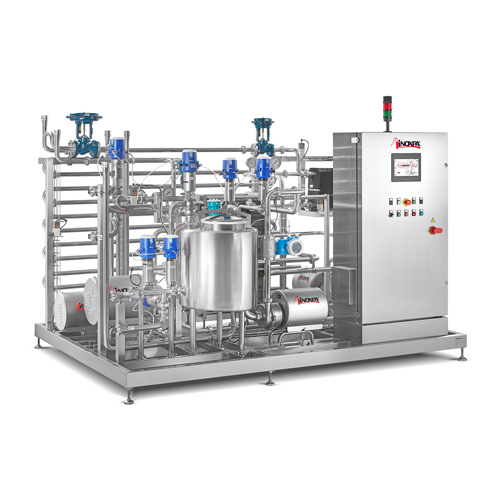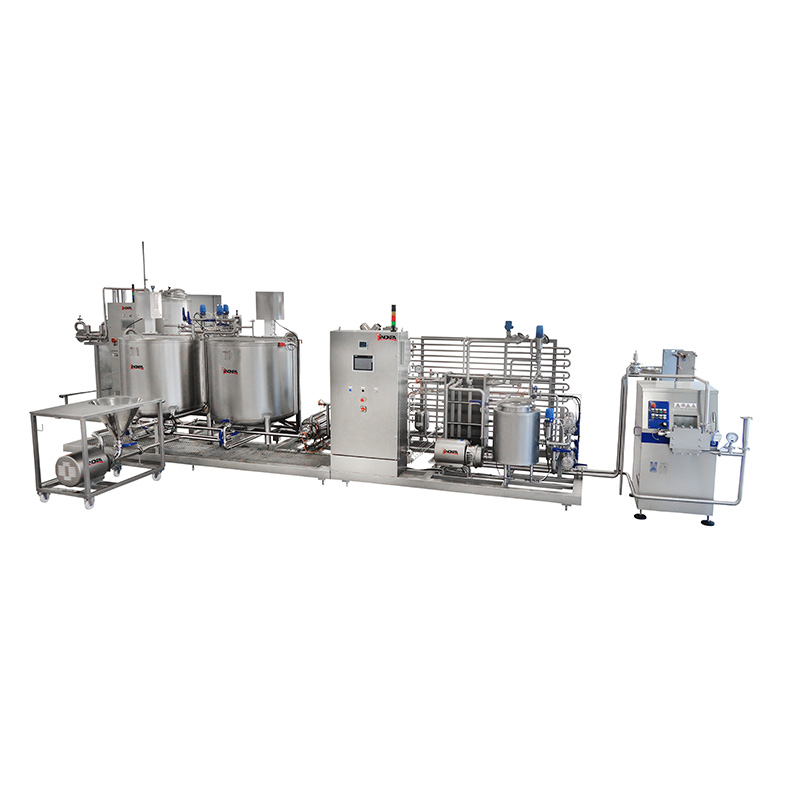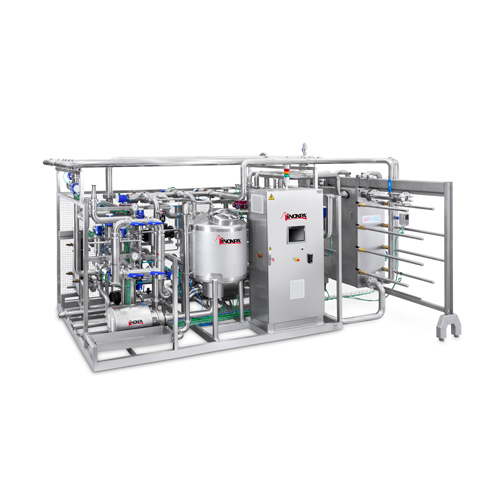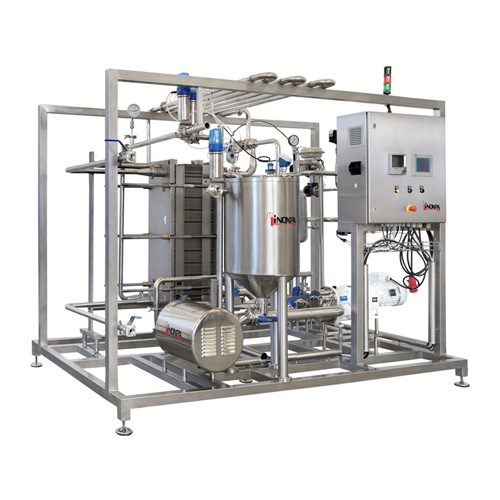Pasteurisation of liquid and low-viscosity foods
High-Temperature-Short-Time (HTST) thermal treatment, also named pasteurisation, is a processing technology based on the effect that the exposure to high temperature (70-100°C) for a certain time (15-300 sec.) has on food products. Such thermal treatment is employed to eliminate pathogens, to make the product safe for consumption and extend its shelf life.
Microorganisms and enzymes that are responsible for food spoilage are either destroyed or deactivated even though most bacteria spores can be only killed by higher temperature, using UHT processing technology.






